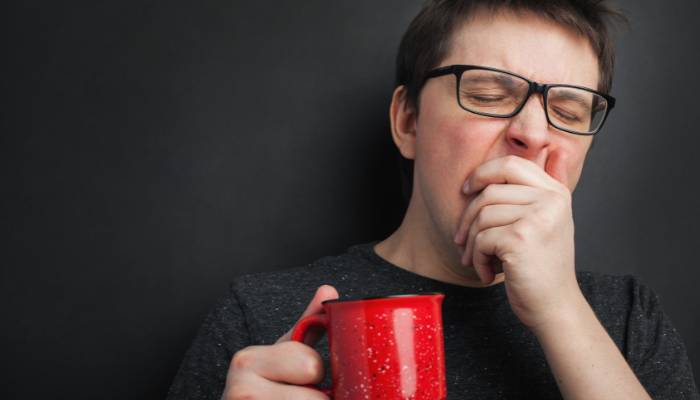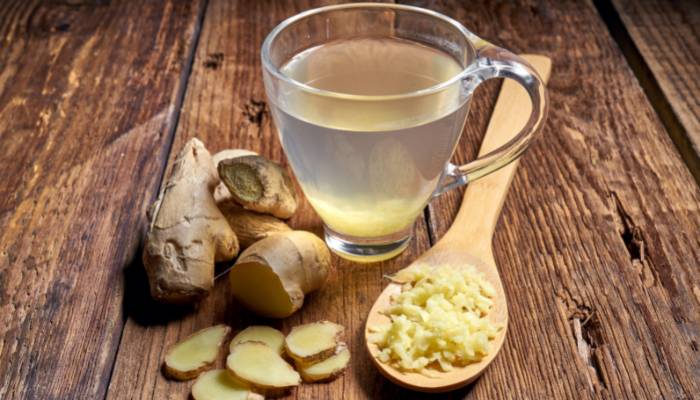A hangover is typically caused by excessive alcohol consumption, which can lead to a variety of physiological effects in the body. When you drink alcohol, it dehydrates you, causing symptoms such as headaches, dizziness, and fatigue. Alcohol can also cause inflammation and irritation in the lining of the stomach, leading to nausea and vomiting. In addition, alcohol can disrupt your sleep patterns, leaving you feeling groggy and unfocused the next day. Finally, alcohol consumption can deplete your body of important vitamins and minerals, contributing to symptoms such as weakness and muscle aches. These factors, combined with the toxic byproducts of alcohol metabolism, can lead to the classic symptoms of a hangover.

How can tea help with a hangover?
Tea can help alleviate the symptoms of a hangover in several ways. First, tea is an excellent source of hydration, which can help counteract the dehydrating effects of alcohol and relieve symptoms such as headaches and dizziness. Second, many types of tea, such as green tea, contain compounds such as antioxidants and catechins that have anti-inflammatory properties and can help soothe inflammation in the body caused by alcohol consumption. Third, herbal teas such as ginger tea and peppermint tea have natural digestive properties that can help ease stomach discomfort and nausea. Finally, tea can provide a gentle energy boost to help counteract the fatigue and lethargy that often accompany a hangover. Overall, the combination of hydration, anti-inflammatory properties, and digestive benefits make tea a natural and effective remedy for many of the symptoms of a hangover.
Best teas for a hangover
There are several types of tea that are particularly effective for easing hangover symptoms. Here are some of the best teas for a hangover:
- Green tea – Green tea is rich in antioxidants and other beneficial compounds that can help reduce inflammation and soothe the digestive system.
- Ginger tea – Ginger has natural anti-inflammatory and digestive properties, making it an excellent choice for easing nausea and stomach discomfort.
- Peppermint tea – Peppermint has a cooling effect on the body and can help soothe upset stomachs and reduce nausea.
- Chamomile tea – Chamomile has natural sedative properties that can help promote relaxation and sleep, making it a good choice for easing anxiety and tension.
- Rooibos tea – Rooibos is a caffeine-free herbal tea that is rich in antioxidants and can help reduce inflammation and promote relaxation.
These teas can be consumed individually or combined to create a blend that addresses multiple symptoms. For example, a combination of ginger and peppermint tea can be particularly effective for easing nausea and stomach discomfort.
How to make hangover tea

Here’s how to make some of the best hangover teas:
- Green tea:
a. Boil water and let it cool for 1-2 minutes.
b. Steep a green tea bag in the water for 3-5 minutes.
c. Remove the tea bag and add honey or lemon to taste, if desired. - Ginger tea:
a. Peel and slice a 2-inch piece of fresh ginger.
b. Boil 3 cups of water in a pot and add the ginger slices.
c. Let the ginger simmer for 10-15 minutes.
d. Strain the ginger from the water and add honey and lemon to taste. - Peppermint tea:
a. Boil water and let it cool for 1-2 minutes.
b. Steep a peppermint tea bag in the water for 3-5 minutes.
c. Remove the tea bag and add honey or lemon to taste, if desired. - Chamomile tea:
a. Boil water and let it cool for 1-2 minutes.
b. Steep a chamomile tea bag in the water for 5-10 minutes.
c. Remove the tea bag and add honey or lemon to taste, if desired. - Rooibos tea:
a. Boil water and let it cool for 1-2 minutes.
b. Steep a rooibos tea bag in the water for 5-10 minutes.
c. Remove the tea bag and add honey or lemon to taste, if desired.
Feel free to experiment with different combinations and ingredients to find the perfect hangover tea for you. Don’t forget to drink plenty of water and rest to help your body recover!
Other hangover remedies to try
In addition to tea, there are several other remedies you can try to alleviate your hangover symptoms. Here are some effective options:
- Drink water – As alcohol dehydrates your body, it’s essential to rehydrate by drinking plenty of water. Aim to drink at least 8-10 glasses of water throughout the day.
- Eat a healthy meal – Eating a nutritious meal can help restore some of the vitamins and minerals that were depleted by alcohol consumption. Opt for foods that are rich in antioxidants, such as fruits and vegetables.
- Take a pain reliever – Over-the-counter pain relievers such as aspirin or ibuprofen can help alleviate headaches and muscle aches.
- Rest – Give your body the rest it needs to recover. Avoid overexerting yourself and try to get plenty of sleep.
- Try a sports drink – Sports drinks can help replace lost electrolytes and provide a quick energy boost. However, be cautious of the high sugar content in some sports drinks.
- Have a shower or take a bath – Taking a warm shower or bath can help relax your body and reduce tension and anxiety.
Remember, the best way to prevent a hangover is to drink alcohol in moderation and to always stay hydrated by drinking plenty of water throughout the night. If you do choose to drink, consider having a glass of water in between alcoholic drinks to help reduce the overall amount of alcohol you consume.
Conclusion
Hangovers can be unpleasant and uncomfortable, but there are many natural remedies that can help alleviate the symptoms. Tea is an excellent option for easing hangover symptoms, as it is hydrating, anti-inflammatory, and can help soothe the digestive system. Remember, the best way to prevent a hangover is to drink alcohol in moderation and stay hydrated throughout the night.
